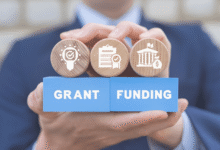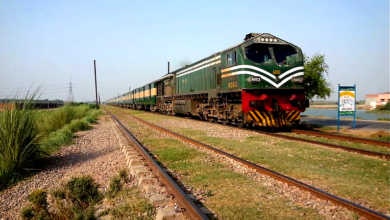Pakistan’s Blockchain Startups to Watch in 2025
Discover Pakistan’s top blockchain startups in 2025 driving fintech, DeFi, and smart contract innovation. The future of crypto is here.

The Blockchain Startups revolution is reshaping industries worldwide, and Pakistan is no exception. By 2025, the country is expected to witness a surge in innovative blockchain startups that leverage decentralized technology for financial inclusion, supply chain transparency, and digital identity solutions. With a growing pool of tech talent, increasing venture capital interest, and supportive government policies, Pakistan’s blockchain ecosystem is poised for exponential growth. This article explores the most promising blockchain startups in Pakistan, their groundbreaking solutions, and how they are positioning the country as a key player in the global blockchain landscape.
As we conclude, it is evident that Pakistan’s blockchain startups are not just keeping pace with global trends but are also carving out unique niches in fintech, logistics, and governance. These companies are addressing local challenges while competing on an international scale, driven by visionary founders and cutting-edge technology. With continued investment and regulatory support, Pakistan could emerge as a Blockchain Startups hub in the coming years, fostering innovation and economic growth. The future looks bright for these startups, and their success will undoubtedly inspire the next generation of tech entrepreneurs in the region.
Pakistan’s Blockchain Startups to Watch in 2025
The Rise of Blockchain Technology in Pakistan
Pakistan’s tech industry has been rapidly evolving, with blockchain technology gaining significant traction among entrepreneurs and investors. Over the past few years, the country has seen a rise in blockchain-based solutions aimed at solving critical issues such as financial exclusion, counterfeit goods, and inefficient record-keeping. The State Bank of Pakistan (SBP) has also shown interest in exploring central bank digital currencies (CBDCs).
Pakistan Population
One of the key drivers behind this growth is Pakistan’s young and tech-savvy population. With over 60% of the population under the age of 30, there is no shortage of skilled developers and entrepreneurs eager to experiment with decentralized technologies. Additionally, the government’s Digital Pakistan initiative has laid the groundwork for a more tech-friendly ecosystem, encouraging startups to innovate in blockchain, AI, and IoT.
AI And Blockchain
The intersection of AI and blockchain is revolutionizing industries by combining decentralized security with intelligent automation. Blockchain provides tamper-proof data storage, while AI enhances decision-making through predictive analytics and machine learning. Together, they enable smarter smart contracts, fraud detection, and transparent AI model training on decentralized networks.
IoT And Blockchain
The integration of IoT and blockchain is transforming industries by enabling secure, decentralized data exchange between connected devices. Blockchain ensures tamper-proof records of IoT-generated data, preventing fraud and enhancing transparency across supply chains, smart cities, and industrial automation. Smart contracts automate device interactions, reducing human intervention while maintaining trustless, auditable transactions.
Top Blockchain Startups to Watch in 2025
Tkxel Blockchain for Enterprise Solutions
Tkxel has emerged as a leader in providing blockchain-based enterprise solutions, helping businesses streamline operations and enhance security. The startup specializes in smart contracts, decentralized applications (dApps), and private blockchain networks for industries such as healthcare, real estate, and logistics. By 2025, Tkxel aims to expand its footprint across South Asia and the Middle East, offering scalable blockchain infrastructure to multinational corporations.
Finja Decentralized Finance (DeFi) Platform
Finja has been a pioneer in Pakistan’s fintech space, and its foray into blockchain-based financial services has been groundbreaking. The startup is developing a DeFi platform that allows users to access lending, staking, and yield farming services without traditional banking intermediaries. With Pakistan’s large unbanked population, Finja’s blockchain solutions could revolutionize financial inclusion by providing secure and transparent alternatives to conventional banking.
SupplyChainX Blockchain for Transparent Logistics
SupplyChainX is leveraging blockchain to bring transparency to Pakistan’s logistics and supply chain industry. By using immutable ledgers, the startup ensures that product origins, shipment conditions, and delivery timelines are verifiable in real-time. This is particularly impactful for agricultural exports, where fraud and inefficiencies have long been a challenge. By 2025, SupplyChainX plans to integrate IoT and AI for even smarter supply chain management.
EtherEdge Smart Contract Development
EtherEdge is a Lahore-based startup focused on developing secure and efficient smart contracts for businesses. Its platform enables companies to automate agreements, reduce legal costs, and eliminate fraud in transactions. EtherEdge has already partnered with several Pakistani legal firms to integrate blockchain into contract management, and its expansion into international markets is expected by 2025.
Pakcoin Pakistan’s Homegrown Cryptocurrency
Pakcoin is one of the first cryptocurrencies developed in Pakistan, aiming to provide a stable and regulated digital currency for local transactions. Unlike volatile cryptocurrencies, Pakcoin is designed to maintain a steady value, making it suitable for everyday payments. The startup is also working with regulators to ensure compliance, positioning itself as a trusted alternative to traditional banking.
Challenges Blockchain Startups
While the potential is immense, blockchain startups in Pakistan face several hurdles. Regulatory uncertainty remains a significant challenge, as the government is still formulating policies around cryptocurrencies and decentralized technologies. Additionally, limited access to venture capital compared to global counterparts can hinder scalability.
Traditional Banking
Traditional banking relies on centralized financial institutions to manage deposits, loans, and transactions under strict regulatory oversight. While it offers stability and consumer protections, its reliance on legacy systems often results in slower processing times and higher operational costs. Services like wire transfers, credit approvals, and account management require manual verification, leading to inefficiencies compared to digital alternatives.
Opportunities for Pakistan’s
However, opportunities outweigh the challenges. The increasing adoption of digital payments, the rise of freelancing, and global interest in Pakistan’s tech talent provide a fertile ground for blockchain innovation. International partnerships and accelerator programs are also helping local startups gain exposure and funding.
Read More: The UAE And Russia Both Committed $1 billion in Funding for the Pakistan Railway.
Conclusion
Pakistan’s blockchain startups are at the forefront of a technological revolution, offering solutions that could transform industries and improve lives. From fintech to logistics, these companies are proving that innovation knows no borders. With the right support from policymakers and investors, Pakistan could become a significant player in the global Blockchain Startups arena by 2025. In conclusion, Pakistan’s blockchain startups in 2025 showcase immense potential, driving innovation in fintech, supply chain, and digital identity.
With increasing government support and growing tech talent, these startups are poised to transform industries and attract global investment. Companies like TrustVerse, BlockTech, and ChainPK are leading the charge with cutting-edge solutions. As blockchain adoption rises, these startups could position Pakistan as a key player in the global decentralized economy. The future looks promising for Pakistan’s blockchain ecosystem, offering scalability, transparency, and financial inclusion. The journey ahead is challenging but promising.
FAQs
What is the future of blockchain in Pakistan?
Blockchain technology in Pakistan is expected to grow significantly by 2025, with startups focusing on fintech, supply chain, and governance solutions. Increased investment and regulatory clarity will further accelerate adoption.
Which industries are benefiting from blockchain in Pakistan?
Key industries include finance (DeFi, digital payments), logistics (supply chain transparency), healthcare (secure patient records), and real estate (smart contracts for property transactions).
Are Pakistani blockchain startups attracting foreign investment?
Yes, several startups have secured funding from international investors, particularly in the fintech and enterprise blockchain sectors.
How is the government supporting blockchain innovation?
The State Bank of Pakistan is exploring CBDCs, while the Digital Pakistan initiative promotes tech entrepreneurship, including blockchain development.
What challenges do blockchain startups face in Pakistan?
Regulatory uncertainty, limited funding, and low public awareness about blockchain are the primary challenges hindering rapid growth.











